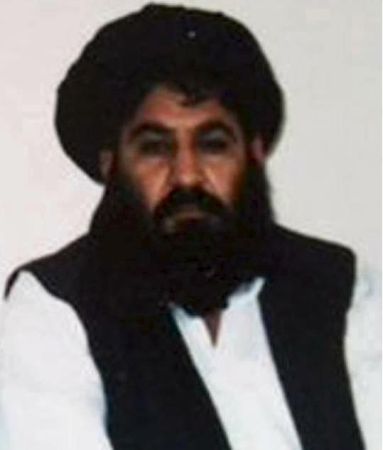 | « Back to article | Print this article |
There have been conflicting reports about whether Taliban’s supreme council was consulted or not on the election. A new leader could be named in his place
 Afghan Taliban's Supreme Council was not consulted over the nomination of Mullah Akhtar Mansour as the group's supremo following Mullah Omar's death and a new leader could be named in his place, media reports said.
Afghan Taliban's Supreme Council was not consulted over the nomination of Mullah Akhtar Mansour as the group's supremo following Mullah Omar's death and a new leader could be named in his place, media reports said.
Mullah Mansour has been chosen to head the militant group but a Taliban spokesman told the BBC that he had not been appointed "by all Taliban", which was against Sharia law. He said the council would hold a meeting to elect a new leader.
The Afghan Taliban's supreme council was not consulted over the election of the new leader following the death of its founder Mullah Omar, the BBC report said.
Separately, a senior member of the powerful leadership council told The Express Tribune that the council will give Mullah Mansour some time to "give up" the top position.
"If he refuses, the council could elect a new leader," he said. There have been conflicting reports about whether the supreme council was consulted or not on the election of Mansour.
Earlier, reports had said that following Omar's death, Mansour was elected as the group's leader after the Taliban Shura council met at an undisclosed location in the border region of Pakistan and Afghanistan to decide on Omar's replacement.
Some Taliban figures have accused pro-Pakistani circles of imposing Mullah Mansour -- known for his support for peace talks -- on them, the BBC report said. At least one Taliban faction would have preferred Mullah Omar's son to succeed him, it said.
Taliban spokesman Mullah Abdul Manan Niazi was quoted as saying that those who elected Mansour had not followed the rules. "According to Islamic rule and principles, when a leader dies, a Shura (council) is called and then its leader is appointed," he added.
Mullah Omar led the movement for some 20 years. His death was confirmed by the Taliban on Thursday. A statement did not say where, when or how he died. It only said that it was from an illness and that he had remained in Afghanistan since the 2001 US invasion.
It is the first time that such differences have risen among the group's leadership, the report said. Finding a unifying leader like Mullah Omar will be almost impossible for the Taliban, so a split is likely, it said.
Mullah Mansour's supporters have dispelled reports that military commander Qaum Zakir is opposing his election. Zakir is an ex-Guantanamo prisoner, who has a base of support in Helmand province and will play a crucial role in the group's future.
Image: Mullah Akhtar Mohammad Mansour is seen in this undated handout photograph by the Taliban. Photograph: Taliban handout via Reuters